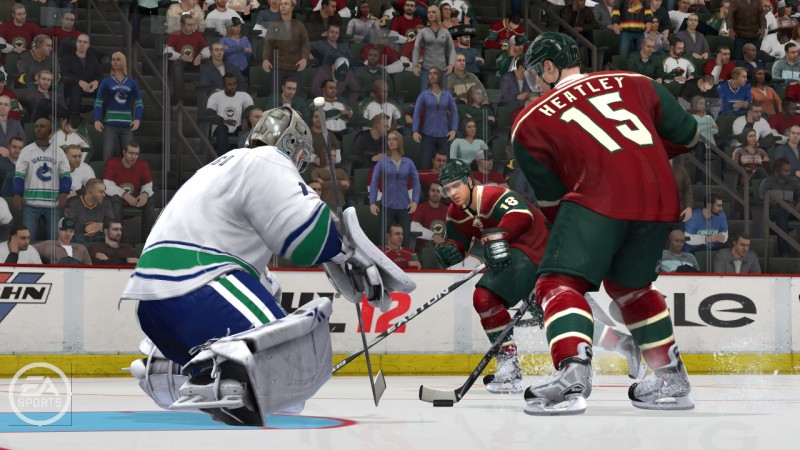Please support Game Informer. Print magazine subscriptions are less than $2 per issue
110 Percent: What We Could Learn From Sports Games

Some may think sports games exist in their own separate universe, but there are some things that these old stick and ball games do right that titles of all genres could take cues from.
In an age where hard genre classifications are a thing of the past and developers are taking inspiration from games of all stripes, there are some great features that some sports games have had for years that could benefit titles in other genres.
Keep Offline Multiplayer Alive
Sports are a natural fit for multiplayer gaming, and the genre has stuck to its guns when it comes to still offering offline multiplayer play. While some games' multiplayer components have omitted offline splitscreen, citing the nuisance of having to battle framerate issues and divvying up and shrinking the screen for players, sports games have continued to include offline multiplayer modes – including offering up large player numbers like Pro Evolution Soccer and FIFA's seven-player possibilities on the PS3.
Nobody doubts that online multiplayer is all the rage and will continue to be in the future, but that shouldn't be at the expense of getting to sit down on the couch next to your buddy and ruin their ego in person.

Gameplay Sliders
I have historically been skeptical of the effectiveness of most sports games' AI sliders, which allow you to tweak things in sports games like puck size/speed in hockey, how smart opposing defenses are, etc., but in theory the concept is great and one which non-sports titles should utilize more. Instead of the simple, one-size-fits-all difficulty settings of Easy, Normal, Hard that most games use, sliders would allow you so much more customization under the hood to craft your game experience.
Besides, under the normal Easy/Medium/Hard difficulty settings, you never really know what's being changed when you switch from the default setting. Are the bad guys easier to kill or are there just less of them? Sliders let you be specific without corrupting the rest of the game in ways you didn't intend.
Alternate Pricing Models
Fight Night Champion introduced an awesome a la carte pricing model for PS3 owners, and this kind of model would be a perfect way for gamers to experience the modes of titles (new or old) that they are most interested in – whether that's just the story mode or a standalone experience like a Horde mode. You can buy Fight Night Champion's Champion Mode (the game's story-based mode) as a download for just $5, and FNC's other parts, like online play or Legacy mode are available separately for their own prices.

Read on for more!
A Plethora of Modes
It's an age-old joke that sports titles are just yearly roster updates, but I don't think people realize how stuffed with features a lot of these games are. More non-sports games should take a cue from them and include standalone modes, similar to how sports titles have amenities like EA's Ultimate Team card-based mode, 2K Sports' old Crib feature, the various Be a Pro/My Player modes, the Jordan Challenge from NBA 2K11, or ones that let gamers play through historical situations or the playoffs.
Imagine for a second that a sports game shipped without some of these extra modes, and you were only left with Franchise and online play – we'd all be crying bloody murder. Games in other genres should be taking note of how sports games offer different kinds of experiences in each package (and with only nine months development time, too), and give fans something more than just the basics.

Browser/Cross-Platform Support
EA Sports' NCAA Football 12 (and to a limited extent NCAA 11) allows players to manage their dynasties from the web – whether that's creating a team from scratch and importing it into the game or allowing you to do everything from recruiting to game-simming from your desktop.
Many games these days blur the line between offline and online modes, but NCAA 12 almost completely ignores it. Imagine how cool it would be if this kind of functionality was extended to other titles. You could set up a crafting apprentice for your Skyrim character while you're at work on your PC, and then could go home and sell off whatever daggers where made or have an inventory full of alchemy ingredients at your disposal.
MMOs like World of Warcraft are also allowing this kind of cross-platform usability, and titles like MLB 12: The Show are enabling cross-platform saves and play between the PS3 and Vita versions of the game. It would be great to see other games followed suit.
What other features in sports games do you think non-sports titles should adopt?










